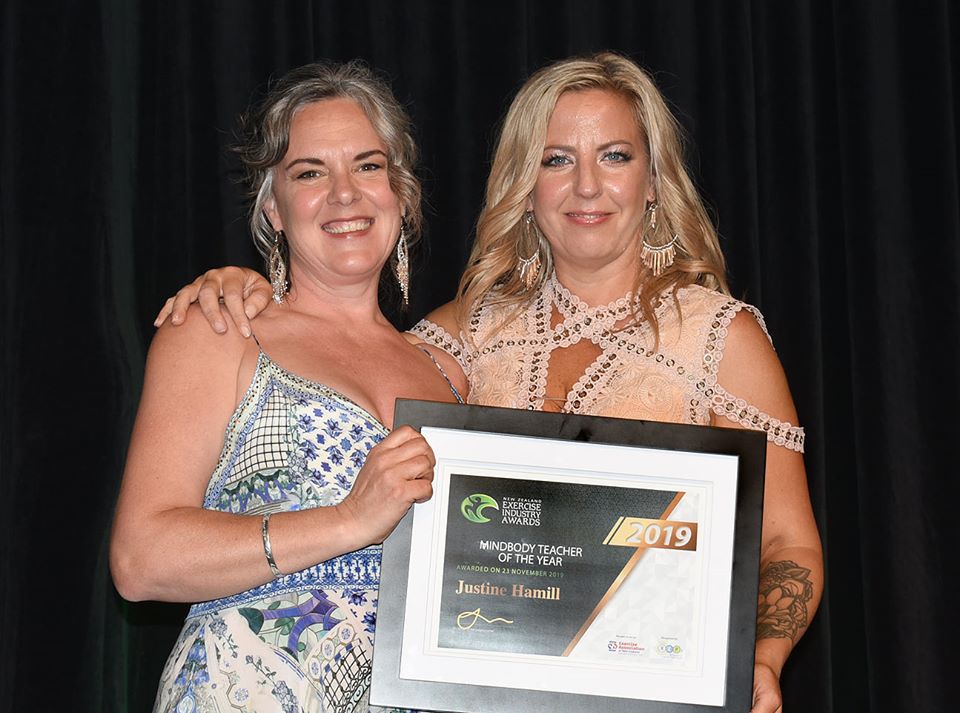
Note to a Younger Self: Systemic Abuse & Individual Response in Yoga
November 13, 2018
Yoga Therapy in New Zealand: A Panel Discussion
December 21, 2018by Sandra Palmer, Integrative Therapy
For most of us reading this article, entering a yoga studio and completing a yoga class will be taken for granted. We may not think twice about wearing tight and revealing yoga clothing. We may be able to follow the yoga teacher’s instructions with ease – some with more grace than others!
Sadly, there are many people for whom attending a yoga class is very difficult or even impossible. This is particularly so for those who experienced trauma in their childhoods or any type of repeated, prolonged trauma.
Often such trauma can leave people alienated from their bodies. I myself, grew up not knowing my body. I frequently moved towns and schools in both Australia and New Zealand. I stopped counting at 10 schools. I was always the “new girl”. This resulted in me growing up in a hypervigilant manner -being at school didn’t feel safe until I had been there a while and knew who I could trust. My world was externally focused on those around me and how they were behaving – there was no survival value in being embodied or relaxed. I don’t think I even started becoming embodied until I entered my yoga teacher training in 2015 at the age of 50!
Now, I am a psychologist with many years of experience, working primarily with sexual trauma, and a yoga teacher. Combined with my personal experiences, my professional skills led me to co-facilitate Trauma Sensitive Yoga (TSY) groups in Auckland alongside my fellow psychologist and yoga teacher Bridget McNamara.
These all-female Trauma Sensitive Yoga groups are aimed at those with a history of sexual trauma.
All students must have a therapist as the yoga is an adjunct therapy to talking therapy and students are funded under ACC Sensitive Claims to attend a series of 8 classes (although self- funding is possible). Approval by ACC for these classes recognises the key role the body plays in both storing and releasing trauma – well espoused by people such as Bessel van der Kolk, David Emerson and Jenn Turner. There are also TSY classes approved by ACC in Wellington and Dunedin and I expect many more will be approved in the future.
The content of these groups and the way we teach were originally informed by Trauma Centre Trauma Sensitive Yoga (TCTSY) training from the Justice Institute in Boston and the work of David Emmerson and Jenn Allen (please see disclaimer below). However, we have adapted this protocol for us as teachers, and to suit the students in front of us. Each group is different, and individual needs are different.
This is some of the most humbling and enjoyable yoga I have taught.
The majority (but not all) of clients have never stepped foot into a yoga studio nor tried yoga anywhere. Their therapist may have suggested they try it but increasingly their attendance is client driven. They arrive at the first class often feeling very anxious, scared, and wary. As co-facilitators, our role is to contain that anxiety, name it and acknowledge it, and to promote safety. Safety is paramount in all that we do in those classes from how we interact with and welcome students, the set-up of the room, and even what we wear (no revealing or tight clothing).
The key aim of our TSY classes is for students to notice their body and be able to make choices from that noticing i.e. we are empowering students. The enormity of being able to make choices from the practice of noticing cannot be underestimated, given trauma is the experience of being disempowered and having choices taken away. We support people to notice the body by using concrete body- based language as well as using different perceptions such as the eyes and their own touch. For example, rather than just say “notice the breath”, we may encourage the student to use their eyes to watch their breath moving in and out of their body and to place their hands-on different parts of their body to feel the breath inhale and exhale.
All yoga “instructions” are suggestions only and choices are always offered. For example, what is it your body wants to do right now based on the sensations you are experiencing? The class is slow paced and leaves time for exploration and for inquiry and curiosity. My own experience is that this is a gentle, enjoyable, and freeing way to practice yoga. It reminds me of doing my own personal practice but in a supported group setting.
Other key aspects of the Trauma Sensitive Yoga class include:
- There are two co-facilitators as this is an ACC requirement
- As facilitators, we stay on our mats the whole time
- As facilitators, we make no adjustments – EVER
- As facilitators, we teach with our eyes closed and from our own embodied experience
- Nothing is a command or instruction, simply a suggestion or a starting point
- Choices are always provided, so each student can choose to move in the way they want to move (or not move) in each moment of the class
Teaching in this way means there is no potential for feeling the shame of not being good enough as with every shape suggested there is no right or wrong way to do it.
We NEVER adjust people as there is no way we want them to be, other than how they are in that moment. We also do not believe we have the right to touch other people given there is a power differential at play between student and teacher. Many people with a trauma history may never have learnt the skill of setting boundaries and saying “no” particularly to those in perceived power. They may say yes to touching or adjusts because they feel they should, resulting in them feeling disempowered, triggered and unlikely to return to yoga.
Feedback from participants indicates that they love:
- Not being touched or having the pressure to be touched
- The options in movement or yoga shape choices
- Feeling no pressure to move in a particular way
- The self-autonomy in the movement
- Being back in their bodies often after a long time, “hello body”
- The freedom of not being watched by the facilitators
We call our classes Trauma Sensitive Yoga deliberately to differentiate the classes from everyday yoga classes. What we teach is more than a trauma-informed class which I see as taking some elements from a TSY class into everyday classes. Some people ask whether all yoga classes should be taught in a trauma-informed way? Our TSY students attend the classes in order to get to know their bodies and many wish to continue with yoga in the community once they have completed 8 or 16 classes. It is vital that there are trauma-informed classes they can attend, where they won’t be returned to a place of feeling disempowered or triggered.
As yoga teachers, maybe we could ask ourselves a few questions about the way we teach so trauma-informed practices become the norm.
- Is that adjustment necessary and how do you know that person consented, really consented to that touch? (I am aware of how controversial this is and personally know the magic of a useful adjustment, but it’s also good to ponder as a question)
- What would it be like to offer more choices in a class and have different students moving in different ways at the same time? What would that challenge in us as teachers?
- What would it be like to teach more slowly and leave more time for curiosity and exploration? To leave time to become really embodied?
I applaud and embrace those teachers who already bring trauma-informed practices to their teaching (and I attend many classes in which this already occurs). I also encourage us as a community of yoga teachers to make yoga accessible to ALL students. I look forward to the day when the majority of yoga classes are trauma-informed.
Disclaimer: I am not a TCTSY trainer, nor promoting myself to be. This is not a description of a TCTSY class. I have not and do not claim to have completed the 300-hour TCTSY training programme. I am simply sharing what I have learnt from all my different combined training and the experience of facilitating two TSY groups per week in 2018.
 Auckland, New Zealand. November 23 – 25, 2018.
Auckland, New Zealand. November 23 – 25, 2018.
Join Sandra Palmer and other yoga experts at the Hauora Yoga Conference, a three-day educational event where the professional yoga community in Aotearoa New Zealand connect, discuss, learn, innovate and practice together. Educate yourself, practice yoga and be part of national discussions with our selection of Clinics, Masterclasses, Workshops, Discussion Panels, Keynote Speakers and more!


 Auckland, New Zealand. November 23 – 25, 2018.
Auckland, New Zealand. November 23 – 25, 2018. Sandra Palmer is a yoga teacher and Registered Psychologist. She was drawn to yoga by the calmness and clarity it provided her and is curious about the interface of yoga and psychology to support wellbeing. She is on a lifelong journey to lead a slower, less stressed, more embodied and mindful life fuelled by her practices. She focuses on teaching slow yoga practices which support healing and awareness of self.
Sandra Palmer is a yoga teacher and Registered Psychologist. She was drawn to yoga by the calmness and clarity it provided her and is curious about the interface of yoga and psychology to support wellbeing. She is on a lifelong journey to lead a slower, less stressed, more embodied and mindful life fuelled by her practices. She focuses on teaching slow yoga practices which support healing and awareness of self.

